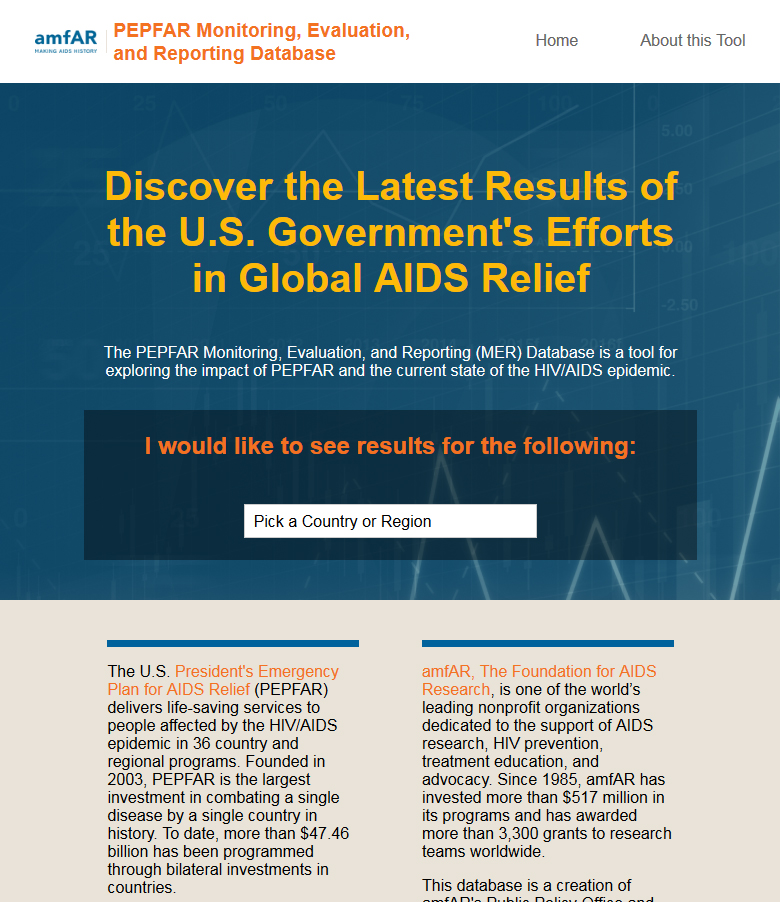amfAR Launches Important New PEPFAR Advocacy Resource
 amfAR has announced the launch of a new web tool that will enable global HIV advocates to access a wide range of programmatic PEPFAR data. The aim is to help civil society advocates, journalists, and researchers to better understand, engage with, and report on U.S. global investments in HIV programming through the President’s Emergency Plan for AIDS Relief (PEPFAR). The PEPFAR Monitoring, Evaluation, and Reporting Database is freely available at http://mer.amfar.org.
amfAR has announced the launch of a new web tool that will enable global HIV advocates to access a wide range of programmatic PEPFAR data. The aim is to help civil society advocates, journalists, and researchers to better understand, engage with, and report on U.S. global investments in HIV programming through the President’s Emergency Plan for AIDS Relief (PEPFAR). The PEPFAR Monitoring, Evaluation, and Reporting Database is freely available at http://mer.amfar.org.
The new website displays the full suite of programmatic data released by PEPFAR, including the targets and results for 30 monitoring and evaluation indicators. The site is designed to support PEPFAR advocates by displaying data visualizations, maps, downloadable PDFs, district-level data, and implementing partner data, with descriptions of what each indicator means, how the results are measured, and how the data can be interpreted.
Advocates are encouraged to use the site in planning for Country Operational Plan (COP) Reviews, POART meetings, Regional Planning Meetings, and other engagement with the U.S. Office of the Global AIDS Coordinator and country teams.
“The goal of the MER database is to help PEPFAR in its ongoing efforts to increase data transparency and general participation in the program monitoring process,” said Brian Honermann, amfAR’s deputy director of public policy. “Our hope is that the MER database will allow all stakeholders to be able to deepen their engagement with the PEPFAR program and enable more substantive conversations about how it can be improved.”
The new database is complemented by amfAR's PEPFAR Country/Regional Operational Plans (COPs/ROPs) database, which contains budget and target information from publicly released documents that enable advocates to better understand who is being funded by PEPFAR in their countries. It highlights funding and targeted results by program area, country, and organization for each year. You can access it at copsdata.amfar.org.
We welcome your questions or comments on this new resource. Please submit them to dbinfo@amfar.org.